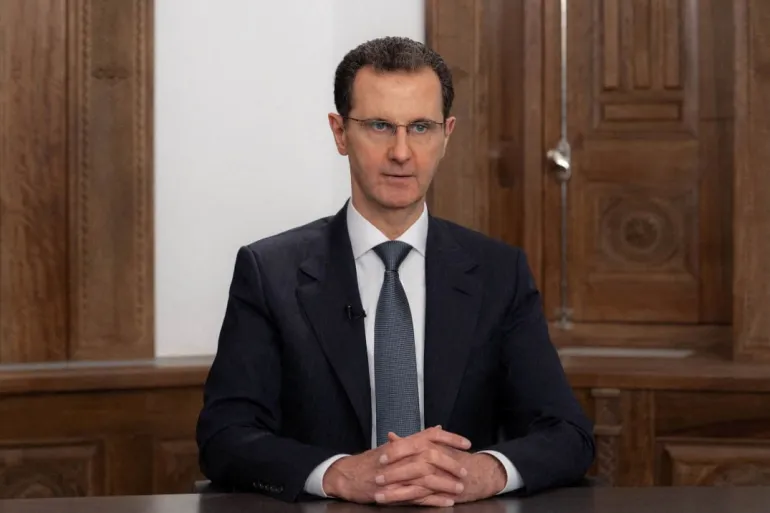Syria’s Assad thanks ‘Arab brothers’ as quakes stir aid diplomacy

The quakes have given the isolated Syrian leader a shot at engaging with neighbours.
In his first speech since the devastating earthquakes last week, Syria’s President Bashar al-Assad has thanked other Arab nations for aid and rescue efforts after years of broken relations.
The giant quakes hit Turkey and Syria on February 6, killing nearly 44,000 people and injuring thousands more.

“Amid our pain and sadness … we should not omit to thank all the countries which have stood with us from the first hours of the disaster, our Arab brothers and our friends whose in-kind and field assistance has made the greatest impact in strengthening our capabilities,” he said late on Thursday in a televised speech.
“Their aid had a major impact on enhancing our ability to confront the difficult conditions at critical hours,” al-Assad added.

Jordan’s Foreign Minister Ayman Safadi visited Damascus on Wednesday, the first such visit since the Syrian conflict started. Al-Assad also received a visit from United Arab Emirates Foreign Minister Sheikh Abdullah bin Zayed.
Some 120 planes packed with humanitarian aid have landed in the country, about half of them from the UAE, which restored ties with Syria in late 2018.
Saudi Arabia has also sent two planes carrying aid to Syria since Tuesday, a first in more than a decade.
Catastrophe ‘much larger’ than capabilities
The Syrian government said the death toll in the territory it controls was 1,414. More than 4,400 deaths have been reported in the rebel-held northwest by the United Nations.
“The magnitude of the disaster and the tasks that we should all shoulder are much larger than the available capabilities,” al-Assad said. “What we shall face for months and years, in terms of economic, social and services challenges is no less important than what we faced during the first days,” he added.
Yet many critics have argued that al-Assad himself has, over the years, weaponised aid and humanitarian assistance to punish parts of the country held by rebels.
Even after last week’s earthquakes, aid has been slow to trickle into the opposition-held northwest. A first UN humanitarian convoy crossed on February 9 at what was then the only authorised border point, Bab al-Hawa.
On Wednesday – nine days after the earthquakes – a UN convoy carrying humanitarian assistance passed through Bab al-Salam after al-Assad authorised the use of two additional crossings from Turkey.
However, the head of the Syrian opposition-run rescue group the White Helmets denounced the UN’s decision to seek authorisation from al-Assad for the border crossings, saying it allowed him to score a “political gain”.
“This is shocking and we are at loss at how the UN is behaving,” Raed al-Saleh said on Tuesday.
The United States has also exempted earthquake aid for Syria from tough sanctions imposed on the country for a period of six months.
SOURCE: AL JAZEERA AND NEWS AGENCIES









